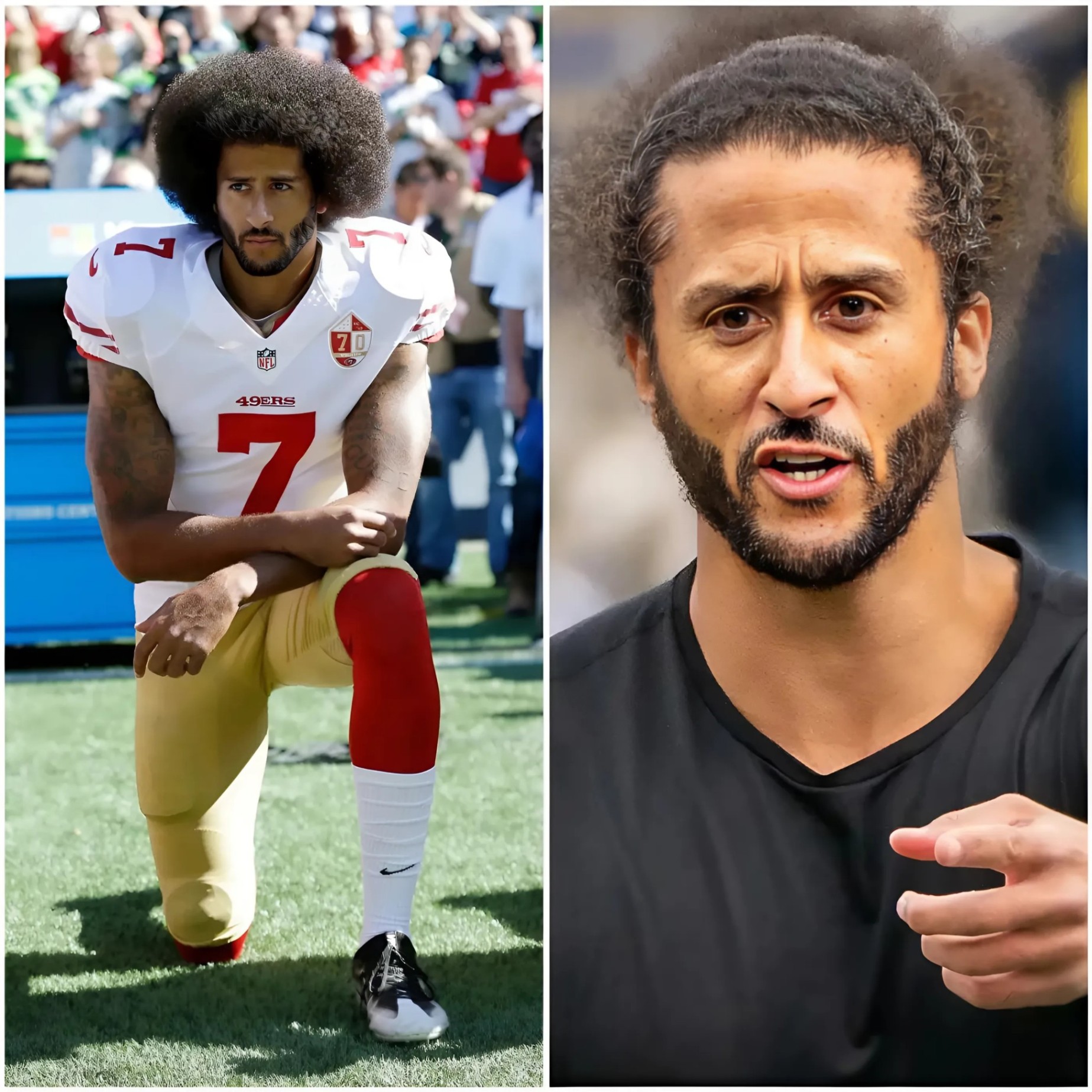Colin Kaepernick, a name that has become syποπγτους with activism in sports, has always been a polarizing figure in American culture. Known primarily for his protests against racial injustice and police brutality during the national anthem, Kaepernick has consistently faced both adulation and backlash. Recently, he made headlines again by suggesting that he might consider relocating to Russia if he continues to feel disrespected in the United States. This statement not only reignited conversations about his activism but also raised questions about respect, patriotism, and the global implications of social justice movements.
Kaepernick’s activism began in earnest in 2016 when he chose to kneel during the national anthem before NFL games. This simple act sparked a nationwide debate about the intersection of sports and social justice. Supporters hailed him as a hero, brave enough to use his platform to address systemic racism, while critics accused him of being unpatriotic. Over the years, the backlash against Kaepernick has been significant, impacting his career and public perception. Despite this, he has remained steadfast in his beliefs, often stating that his activism is not just about football but about the broader struggle for civil rights.
The idea of moving to Russia, a country with its own complex human rights record, may seem paradoxical at first. However, Kaepernick’s statement can be interpreted as a reflection of his deep disillusionment with the United States. He has often expressed disappointment with the lack of progress in addressing racial inequality and police violence. In suggesting a move to Russia, Kaepernick might be highlighting a sentiment shared by many activists: the struggle for justice and equality can sometimes feel like an uphill battle in one’s own country.
Furthermore, Kaepernick’s comment brings attention to the concept of respect-what it means to be respected in a society and how that respect is often contingent on one’s race, identity, and beliefs. For many marginalized individuals, the quest for respect can be a lifelong journey fraught with challenges. Kaepernick’s experiences encapsulate this struggle; despite his considerable achievements as an athlete, his activism has often overshadowed his athletic prowess. This raises the question: what does it take for a person, especially someone who is Black and outspoken, to receive the respect they deserve in America?
In addition to respect, Kaepernick’s potential move to Russia underscores the idea of belonging. Belonging is a fundamental human need, and for Kaepernick, it appears to be intricately tied to his identity as a Black man in America. His statement could be viewed as a metaphorical expression of feeling alienated in a society that often marginalizes voices like his. The suggestion of moving abroad signifies not just a physical relocation but a yearning for a place where he feels valued and understood.
The implications of Kaepernick’s comments extend beyond personal sentiment. They serve as a critique of the American socio-political landscape, particularly in how it treats dissenters and activists. In an age where social media can amplify voices for justice, it is equally crucial to recognize how these voices are received. Kaepernick’s experiences highlight the often contentious relationship between athletes and the institutions that govern their sports and, by extension, their lives. The NFL, while having made some strides in supporting social justice initiatives, still faces criticism for its handling of Kaepernick’s protests and the subsequent treatment of players who voice similar concerns.
Moreover, Kaepernick’s mention of Russia invites broader discussions about global perspectives on activism and human rights. While Russia is often criticized for its authoritarian regime and human rights violations, Kaepernick’s comment suggests a complex view of what it means to fight for justice. His willingness to consider such a drastic move reflects the frustrations felt by many who engage in activism: the need for solidarity in the fight against oppression, regardless of national boundaries.
Ultimately, Kaepernick’s statement about potentially relocating to Russia serves as a powerful reminder of the complexities of respect, belonging, and activism. It challenges us to reflect on how we treat those who dare to stand up against injustice, questioning what it means to truly support voices for change. In a world where discussions about race, identity, and justice continue to evolve, Kaepernick remains a crucial figure in understanding the ongoing struggle for equality in America and beyond. His journey emphasizes that the quest for respect and justice is not limited by geography; it is a universal fight that transcends borders and speaks to the core of what it means to be human.
News
Billionaire Elon Musk confirmed that he has 12 children with 3 women, he must start redistributing inheritance when the 12th child is born
Billionaire Elon Musk has officially confirmed that he has had a third child with his female subordinate Shivon Zilis. Currently, Musk has a total of 12 children with 3 wоmen. In an interview with Page Six (USA), Elon Musk (52…
Every time he wins an award, Siya Kolisi gives his wife an expensive supercar to add to his car collection
Following his relocation to France, Springboks captain Siya Kolisi has added a stylish new set of wheels to his collection. Feast your eyes on his latest vehicle! Kolisi was pleasantly surprised with a brand-new Range Rover, a generous gift presented…
Justin Baldoni’s Man Enough Co-Host Liz Plank Leaves Podcast After Blake Lively Claims: ‘We All Deserve Better’ (Exclusive)
On Dec. 20 Lively accused Baldoni of sexual harassment on set and a retaliatory public smear campaign in a legal filing Justin Baldoni, Blake Lively and Liz Plank. Journalist and author Liz Plank co-hosts the podcast The Man Enough with actor-filmmaker…
Heisman Winner Travis Hunter Deactivates Instagram Account as Hatred Toward Fiancée Leanna Lenee Continues
The controversy initially began as Hunter received the Heisman trophy and many fans called out Lenee’s behavior in videos that circulated online Travis Hunter Leanna Lanee. Amid the continued vitriol going around online about his fiancée Leanna Lenee, 2024 Heisman…
Tallulah Willis Reveals She’s Engaged to Musician Justin Acee
The 30-year-old daughter of Demi Moore and Bruce Willis announced her engagement on Monday, Dec. 23 Tallulah Willis announces engagement to Justin Acee. Tallulah Willis is ready to walk down the aisle! “Everyday @justinacee,” she wrote next to the social media post…
Blake Lively’s A Simple Favor 2 Costar Michele Morrone Says He ‘Felt Her Pain’ Over Justin Baldoni’s Alleged Behavior
Morrone filmed ‘A Simple Favor 2’ with Lively shortly after she wrapped ‘It Ends With Us’ with Baldoni Michele Morrone and his costar Blake Lively. Michele Morrone is lending his support to his costar Blake Lively. On Monday, Dec. 23,…
End of content
No more pages to load











